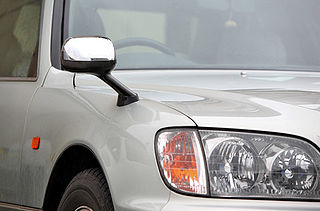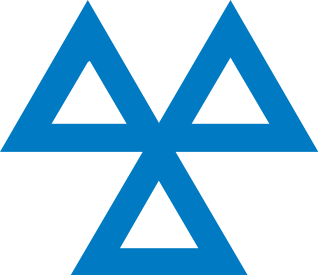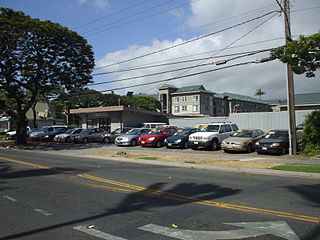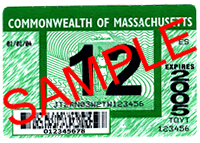
Electronic toll collection (ETC) is a wireless system to automatically collect the usage fee or toll charged to vehicles using toll roads, HOV lanes, toll bridges, and toll tunnels. It is a faster alternative which is replacing toll booths, where vehicles must stop and the driver manually pays the toll with cash or a card. In most systems, vehicles using the system are equipped with an automated radio transponder device. When the vehicle passes a roadside toll reader device, a radio signal from the reader triggers the transponder, which transmits back an identifying number which registers the vehicle's use of the road, and an electronic payment system charges the user the toll.

Electronic stability control (ESC), also referred to as electronic stability program (ESP) or dynamic stability control (DSC), is a computerized technology that improves a vehicle's stability by detecting and reducing loss of traction (skidding). When ESC detects loss of steering control, it automatically applies the brakes to help steer the vehicle where the driver intends to go. Braking is automatically applied to wheels individually, such as the outer front wheel to counter oversteer, or the inner rear wheel to counter understeer. Some ESC systems also reduce engine power until control is regained. ESC does not improve a vehicle's cornering performance; instead, it helps reduce the chance of the driver losing control of the vehicle.
Grey import vehicles are new or used motor vehicles and motorcycles legally imported from another country through channels other than the maker's official distribution system or a third-party channel officially authorized by the manufacturer. The synonymous term parallel import is sometimes substituted.

Street-legal, road-legal, or road-going, refers to a vehicle such as a car, motorcycle, or light truck that is equipped and licensed for use on public roads, being therefore roadworthy. This will require specific configurations of lighting, signal lights, and safety equipment. Some specialty vehicles that will not be operated on roads, therefore, do not need all the features of a street-legal vehicle; examples are a vehicle used only off-road that is trailered to its off-road operating area, and a racing car that is used only on closed race tracks and therefore does not need all the features of a street-legal vehicle. As well as motor vehicles, the street-legal distinction applies in some jurisdictions to track bicycles that lack street-legal brakes and lights. Street-legality rules can even affect racing helmets, which possess visual fields too narrow for use on an open road without the risk of missing a fast-moving vehicle.

Japanese domestic market (JDM) refers to Japan's home market for vehicles and vehicle parts. Japanese owners contend with a strict motor vehicle inspection and grey markets.
The National Highway Traffic Safety Administration is an agency of the U.S. federal government, part of the Department of Transportation, focused on transportation safety in the United States.

The MOT test is an annual test of vehicle safety, roadworthiness aspects and exhaust emissions required in the United Kingdom for most vehicles over three years old. In Northern Ireland the equivalent requirement applies after four years. The requirement does not apply to vehicles used only on various small islands with no convenient connection "to a road in any part of Great Britain"; no similar exemption is listed at the beginning of 2014 for Northern Ireland, which has a single inhabited island, Rathlin. The MOT test was first introduced in 1960 as a few basic tests of a vehicle and now covers twenty different parts or systems on or in the car.
The American Association of Motor Vehicle Administrators (AAMVA) is a non-governmental, voluntary, tax-exempt, nonprofit educational association. AAMVA is a private corporation which strives to develop model programs in motor vehicle administration, police traffic services, and highway safety.

The World Forum for Harmonization of Vehicle Regulations is a working party (WP.29) of the Inland Transport Committee (ITC) of the United Nations Economic Commission for Europe (UNECE). Its responsibility is to manage the multilateral Agreements signed in 1958, 1997 and 1998 concerning the technical prescriptions for the construction, approval of wheeled vehicles as well as their Periodic Technical Inspection and, to operate within the framework of these three Agreements to develop and amend UN Regulations, UN Global Technical Regulations and UN Rules, kind of vehicle regulation.

Motor vehicle registration is the registration of a motor vehicle with a government authority, either compulsory or otherwise. The purpose of motor vehicle registration is to establish a link between a vehicle and an owner or user of the vehicle. This link might be used for taxation or crime detection purposes. While almost all motor vehicles are uniquely identified by a vehicle identification number, only registered vehicles display a vehicle registration plate and carry a vehicle registration certificate. Motor vehicle registration is different from motor vehicle licensing and roadworthiness certification.

A used car, a pre-owned vehicle, or a secondhand car, is a vehicle that has previously had one or more retail owners. Used cars are sold through a variety of outlets, including franchise and independent car dealers, rental car companies, buy here pay here dealerships, leasing offices, auctions, and private party sales. Some car retailers offer "no-haggle prices," "certified" used cars, and extended service plans or warranties.

Vehicle inspection is a procedure mandated by national or subnational governments in many countries, in which a vehicle is inspected to ensure that it conforms to regulations governing safety, emissions, or both. Inspection can be required at various times, e.g., periodically or on the transfer of title to a vehicle. If required periodically, it is often termed periodic motor vehicle inspection; typical intervals are every two years and every year. When a vehicle passes inspection, often a sticker is placed on the vehicle's windshield or registration plate to simplify later controls, but in some countries—such as the Netherlands since 1994—this is no longer necessary. Most US inspection decals/stickers display the month's number and the year.

Towing is coupling two or more objects together so that they may be pulled by a designated power source or sources. The towing source may be a motorized land vehicle, vessel, animal, or human, and the load being anything that can be pulled. These may be joined by a chain, rope, bar, hitch, three-point, fifth wheel, coupling, drawbar, integrated platform, or other means of keeping the objects together while in motion.

Taxis in Australia are highly regulated by each Australian state and territory, with each state and territory having its own history and structure. In December 2014, there were 21,344 taxis in Australia. Taxis in Australia are required to be licensed and are typically required to operate and charge on a fitted taximeter. Taxi fare rates are set by State or Territory governments. A vehicle without a meter is generally not considered to be a taxi, and may be described, for example, as a hire car, limousine, carpool, etc. Most taxis today are fueled by liquid petroleum gas. A2B Australia owns and operates the Cabcharge payment system, which covers 98% of taxis in Australia, and operates one of Australia's largest taxi networks.
OMVIC is a council that regulates motor vehicle sales in Ontario and administers and enforces the Motor Vehicle Dealers Act on behalf of the Ontario Ministry of Government and Consumer Services (MGCS). OMVIC's mandate is to maintain a fair and informed marketplace by protecting the rights of consumers while enhancing the professionalism of the industry and ensuring fair, honest, and open competition for registered motor vehicle dealers.

Japanese used vehicle exporting is a grey market international trade involving the export of used cars and other vehicles from Japan to other markets around the world since the 1980s.
The Salter Report was named after Arthur Salter, who chaired an influential conference of road and rail experts in 1932 which reported in 1933. The report directed British government policy for transport funding for decades to follow.
The Highway Traffic Act is a statute in Ontario, Canada, which regulates the licensing of vehicles, classification of traffic offences, administration of loads, classification of vehicles and other transport-related issues. First introduced in 1923 to deal with increasing accidents during the early years of motoring in Ontario, and replacing earlier legislation such as the Highway Travel Act, there have been amendments due to changes to driving conditions and new transportation trends. For example, in 2009, the Act was revised to ban the use of cell phones while driving.
Livingston International is a North American provider of customs brokerage services. Livingston International provides customs brokerage, trade consulting and international freight forwarding services to importers and exporters throughout North America and around the globe. Headquartered in Toronto, Ontario, Canada, with U.S. headquarters in Chicago, Livingston has over 3,300 employees located at more than 125 border points, seaports, airports and other locations across in North America, Europe and Asia. Livingston is currently Canada's largest customs broker and third-largest in the United States.
As a part of student transport, buses play a key role in transporting students to and from school, coinciding with their high seating capacity and a higher degree of safety compared to other modes of transportation. The usage of buses in student transport varies worldwide, ranging from the usage of public transportation by students, transit buses set aside to transport students, or purpose-built school buses owned and operated by school systems.












